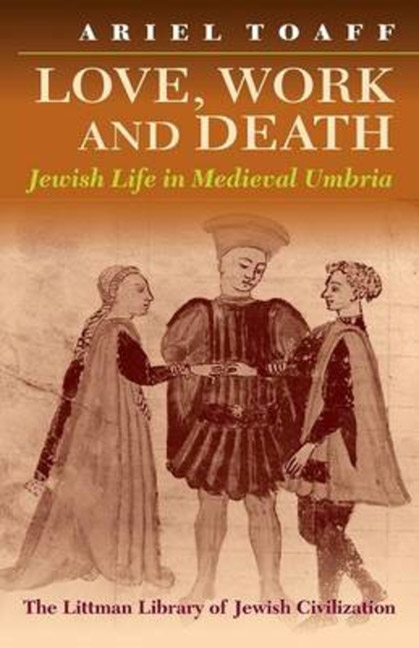Book contents
- Frontmatter
- Contents
- List of Figures
- List of Tables
- Abbreviations
- Note on Currency, Weights, and Measures
- Map showing Jewish settlements in Umbria
- Introduction
- 1 Sex, Love, and Marriage
- 2 Love of Life and Intimations of Mortality
- 3 Meat and Wine
- 4 The House of Prayer
- 5 Outcasts from Society
- 6 Witchcraft, Black Magic, and Ritual Murder
- 7 Converts and Apostates
- 8 The Pattern of Discrimination
- 9 Merchants and Craftsmen
- 10 Doctors and Surgeons
- 11 Banks and Bankers
- Bibliography
- Index
8 - The Pattern of Discrimination
- Frontmatter
- Contents
- List of Figures
- List of Tables
- Abbreviations
- Note on Currency, Weights, and Measures
- Map showing Jewish settlements in Umbria
- Introduction
- 1 Sex, Love, and Marriage
- 2 Love of Life and Intimations of Mortality
- 3 Meat and Wine
- 4 The House of Prayer
- 5 Outcasts from Society
- 6 Witchcraft, Black Magic, and Ritual Murder
- 7 Converts and Apostates
- 8 The Pattern of Discrimination
- 9 Merchants and Craftsmen
- 10 Doctors and Surgeons
- 11 Banks and Bankers
- Bibliography
- Index
Summary
PRIESTS AND JEWS
IT was always open season between Jews and Observant preaching friars. Church pulpits, market squares, and municipal council chambers were the chief battlegrounds. As in all long-drawn-out conflicts, there were slack periods, when the front seemed quiet and the two armies, so to speak, were engaged in digging communication trenches and reorganizing their own ranks. But there were other periods, at more or less the same times each year, when war would suddenly break out, cannon would thunder, and all weapons and ammunition would be used unstintingly. Trouble habitually erupted during Holy Week and the days immediately preceding it, for then the friars would deploy all their forces in the hope of gaining a definitive victory. For their part, Jews went on the defensive and waited for the dust to settle. Then, if they were still in a position to do so, they would lick their wounds and proceed to the counter-attack in order to regain lost ground, recruiting allies wherever they could. Relations with Minorite friars were always stormy, but the Jews’ relations with their non-itinerant brothers monks, priests, and friars-seem to have been much less turbulent and dramatic. Indeed, in everyday life they were often distinctly cordial, or at least unmarked by apparent prejudice or animosity.
The case of Assisi, the city of St Francis, is particularly informative in this context, offering us exceptionally wide-ranging documentation to illustrate Jewish-Christian relations in all their variety. Here, towards the end of the fourteenth century, the friars of S. Francesco were treated by a Jewish doctor, Sabatuccio da Roma, and they were clearly not afraid that he might poison them either physically or spiritually. Furthermore, the good monks were not above drinking a glass of fine wine at his table, or buying the odd barrel of Sangiovese or vintage Vernaccia from him for the monastery. The friars of the Confraternity of S. Stefano were dedicated clients of the ‘asteria del Campo', run by another Jew from Assisi, who supplied them with cheaper, more workaday red wine.
When the roof of the church of S. Francesco was in danger of collapse in 1436, the friars turned to a Jewish ironmonger to provide the material for its restoration; in 1455 another Jew was called upon to unpick and flatten out the monastery's worn and lumpy woollen mattresses.
- Type
- Chapter
- Information
- Love, Work, and DeathJewish Life in Medieval Umbria, pp. 166 - 194Publisher: Liverpool University PressPrint publication year: 1996

